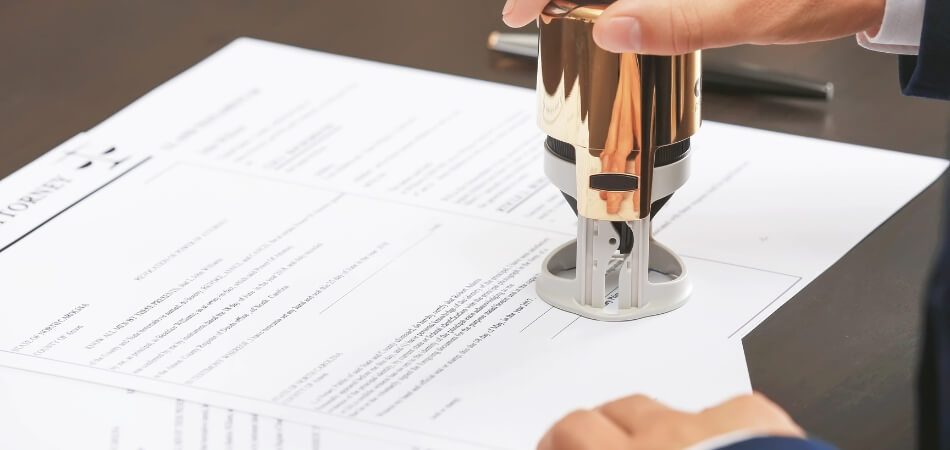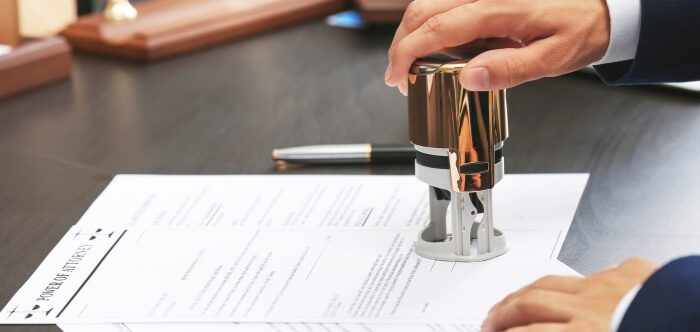Many people hold onto important papers for years and wonder if they’re still useful when needed. That’s where the question comes in: how long is a notarized document valid in USA? Since notarized papers often relate to major life events, knowing their actual standing is essential, much like understanding the purpose of conferences in professional and academic settings.
Actually, a notarization itself never expires. Once a notary has verified your identity and placed their seal, that act remains valid. However, the content of the document may become outdated, and institutions like banks, courts, or agencies can still request a more recent notarization.
Understanding the difference between notarization and document acceptance can save you from frustration and delays. If you want to know when older notarized papers still work and when you’ll need a fresh one, keep reading for the full guide.
How Long is a Notarized Document Valid in USA?
Ever held onto a notarized document for years and wondered if it still holds weight? You’re not alone; it is one of the most common questions people have. The good news is, a notarized document in the United States does not have an expiration date.

The Real Answer
When a notary public stamps and signs a document, that act remains valid forever as long as it was done correctly on the date it was signed. It doesn’t suddenly “expire” a year or two later. Even if the notary’s commission has since expired, it doesn’t cancel out what they did in the past.
What can change, however, is whether the content of the notarized letters or documents is still considered current. For example, a bank, court, or government agency may not accept a notarized form that was signed ten years ago, simply because the information could be outdated. In these cases, the notarization itself is fine, but the document might be considered stale.
When a Fresh Notarization is Needed?
Some institutions require documents to be recently notarized, often within 30, 60, or 90 days. This isn’t because notarizations expire, but because the organization wants up-to-date confirmation. Always check the specific rules of the agency or recipient before submitting older notarized papers.
Simple Template: Statement of No Change
If you’re asked to update an older notarized document, you can attach a short affidavit like this to show that nothing has changed since the original signing:
Affidavit of No Material Change
Affidavit of No Material Change
I, [Full Name], residing at [Address], hereby affirm that the information contained in the notarized document dated [Original Date] remains true, correct, and unchanged to the best of my knowledge. No alterations or updates have been made to the original content since
the date of notarization.
Signed: ____________________
Date: ____________________
(Notary acknowledgment below)
This way, you don’t have to redo the entire document, just confirm its accuracy.
So, while notarizations themselves never expire, the usefulness of the document depends on how current the information is. If in doubt, it’s always safer to get a fresh notarization or attach a simple affidavit. That small step saves time, avoids rejection, and keeps your paperwork ready when you need it.
The Purpose of a Notarized Document
Notarized papers are more than just forms with a stamp; they give weight and credibility when shared with banks, courts, or other institutions. In many ways, notarization works like conference organization, creating structure and reliability so that everything is trusted and recognized. Here’s how they achieve that:
Establishing Identity
A notary carefully checks government-issued identification to make sure the signer is truly who they claim to be. This stops impersonation and prevents others from signing under false names. By confirming identity, the notary makes the document dependable when it’s needed later.
Confirming Authenticity
The notary’s seal proves that the document was signed willingly, in the presence of an impartial witness. This ensures the paper is genuine and wasn’t secretly altered. Because of this safeguard, notarized documents hold stronger ground when questioned by institutions or legal authorities.
Building Legal Trust
Many organizations only accept notarized forms because they carry a higher level of credibility. By showing that the signing was genuine, the notary’s stamp makes the document harder to challenge and more likely to be accepted in both routine and serious matters.
Put simply, notarization turns an ordinary document into one that carries legal strength and trust. It ensures that what you sign today won’t be doubted tomorrow. Just as the importance of conferences lies in bringing people together for shared goals, notarization ensures clarity and trust in legal matters.
Do Notarized Documents Expire in the U.S.?
Many people assume that notarized documents work like a license or ID card, with an expiration date stamped on them. That’s not how it works. The truth is more about the content of the document and how different organizations decide to accept it. Let’s break it down clearly.
Notarization vs. Document Content
The notarization itself never expires. Once a notary stamps and signs, that act stays valid for life. What can become outdated is the document’s information, like an old address, financial details, or agreements that are no longer accurate. In such cases, the content is the issue, not the notarization.
Validity Tied to the Date of Signing
A notarization only proves that the signer’s identity was verified and they willingly signed on that specific day. It doesn’t promise the information inside the document will stay accurate forever. This is why notarized papers from many years ago might still be valid but questioned for relevance.
Different Rules for Different Institutions
Acceptance of a notarized document often depends on who is reviewing it.
- Banks may require documents notarized within the last 30–90 days.
- Courts usually focus on whether the content is still accurate and legally relevant.
- Government agencies may reject old papers simply because they want the latest proof of identity, ownership, or consent.
So while notarizations never expire on their own, the usefulness of a notarized document depends on who’s reviewing it and how current the information is. When in doubt, getting a fresh notarization is the easiest way to avoid delays.
When Are you asked for a Fresh Notarization?
Even though notarizations themselves don’t expire, certain organizations only accept documents that are recently notarized. This isn’t about legality, it’s about making sure the information is still accurate and relevant. In these cases, “fresh” notarization becomes a requirement. Let’s look at some common situations where this rule applies.
Mortgage and Real Estate Closings
Lenders and title companies usually require notarized papers that are no older than 30–60 days. The reason is simple: property values, loan terms, and financial records change quickly. A recent notarization assures them the details reflect your current status.
Department of Motor Vehicles (DMV)
For vehicle transfers or registration paperwork, many DMVs expect notarizations done within the last 60–90 days. This makes sure ownership details and signatures are still valid at the time of transfer. Submitting older, notarized forms often leads to delays or outright rejection.
Banks and Credit Unions
Financial institutions are some of the strictest when it comes to date requirements. Affidavits, authorizations, and account-related forms often need to be notarized within 30 days. This helps prevent fraud and ensures your instructions match your current financial situation.
Immigration or Visa Processes
When dealing with government agencies, especially for immigration or visa-related applications, notarized documents that are more than a few months old may be rejected. They want to see up-to-date proof of your intent, identity, or financial support.
Business Agreements
In corporate settings, companies sometimes require notarized contracts or authorizations that are signed within a set window, often 60-90 days. This keeps agreements aligned with the latest policies or terms.
Request for Acceptance of a Previously Notarized Document
Sometimes you may not be sure if an older notarized document will still be accepted. This is common with paperwork such as affidavits, powers of attorney, or even a notarized invitation letter for USA visa applications.
Subject: Request for Acceptance of Previously Notarized Document
Dear [Recipient’s Name],
I hope this message finds you well. I am writing to confirm whether the notarized document dated [insert original date] will be accepted for [state purpose, e.g., loan processing, DMV submission, court filing]. The document was properly notarized and has not been altered since that time.
If your office requires a fresh notarization, please let me know so I can provide an updated version without delay. I have attached a scanned copy of the document for your review.
Thank you for your time and guidance. I look forward to your confirmation.
Sincerely,
[Your Full Name]
[Your Contact Information]
Fresh notarization is less about law and more about trust. By getting documents notarized close to the date of use, you avoid pushback from lenders, agencies, or institutions. When in doubt, always check the recipient’s rules before submitting older paperwork.
How do Notaries Ensure the Authenticity and Validity of Documents?
Notarizations are trusted because notaries follow specific steps that safeguard the process. These steps make sure the signer is genuine, the document is properly executed, and the record can stand up to review later. Here’s why notarizations done the right way remain valid.
- Checking Identification: A notary confirms the signer’s identity using a government-issued ID, making sure the person is truly who they claim to be.
- Confirming Voluntary Signing: The notary ensures the signer is acting willingly, without pressure or influence. A document signed under duress has no real strength.
- Being Present at the Signing: The notary must personally witness the signature. This direct presence prevents forgery and later disputes about authenticity.
- Reviewing the Document: While notaries don’t judge content, they check for completeness and make sure there are no blank spaces that could be misused later.
- Applying the Official Seal: The notary’s seal and signature serve as proof the act was completed properly. Without it, the document isn’t officially notarized.
- Keeping a Record Book: Many notaries log every notarization in a journal. This record provides evidence if the document is ever challenged in the future.
By following these safeguards, notaries give documents long-lasting credibility. It’s these careful steps that make notarizations continue to hold value, even years after the stamp was placed.
State Rules That Can Affect Acceptance
Not all notarized documents are treated the same across the United States. Each state has its own rules about what’s considered valid, from the type of ID accepted to how long notaries must keep records. These small differences can impact whether your document is accepted or questioned. Here are a few examples worth noting.
California: Expired IDs and Time Limits
In California, a notary can accept an expired driver’s license as proof of identity, but only if it was issued within the last five years. This means a document notarized with a very old ID could raise red flags, even if the notarization itself was properly done.
Pennsylvania: RULONA Rules
Pennsylvania follows the Revised Uniform Law on Notarial Acts (RULONA), which sets strict standards for how notaries verify identity, keep records, and word their certificates. If a document doesn’t meet those standards, it might not be accepted, even though it was notarized.
Retention Requirements
Some states require notaries to keep journals for several years after performing notarizations. If there’s ever a dispute, those records can confirm the act was valid. In places with strict retention rules, a missing or incomplete record could make a document harder to defend.
Other State Variations
Rules also differ on things like remote online notarization (RON), acceptable forms of ID, and whether extra witnesses are needed for certain documents. Because of this, a notarized paper that passes easily in one state might face more questions in another.
Since state rules vary, always double-check the requirements where the notarization will be used. A quick look at your state’s Secretary of State website or notary handbook can save you from problems later on.
Apostille vs. Just Notarized (International Use)
Notarization alone works inside the U.S., but when you need documents accepted abroad, extra steps are required. Some countries ask for an apostille, while others require full authentication. Here’s a quick side-by-side look.
| Feature / Use Case | Notarization (Domestic) | Apostille (Hague Countries) | Authentication (Non-Hague Countries) |
| Purpose | Confirms identity & signature | Confirms notary’s authority | Confirms notary’s authority |
| Where Valid | Anywhere in the U.S. | Hague Convention countries | Non-Hague countries |
| Issued By | Notary Public | State Secretary of State | State → U.S. Dept. of State → Embassy |
| Process Length | Immediate | A few days to 2 weeks | Weeks or longer |
| Use Cases | Wills, deeds, contracts | Diplomas, birth certs, business docs | Adoptions, business contracts, legal docs |
| Extra Steps | None | Must be notarized first | Multi-step authentication path |
Notarization (Domestic Use)
A notary verifies your identity and confirms you signed willingly, then stamps the document. This is legally valid across the United States. While strong enough for local use, it’s not designed for foreign recognition, which is why additional certification is often needed when sending papers abroad.
Apostille (Hague Countries)
An apostille is a special certificate attached to your notarized document, proving that the notary was officially authorized. It’s recognized by all Hague Convention countries and is requested from your state’s Secretary of State office. The process is usually quick, making it the simplest option for international recognition.
Authentication (Non-Hague Countries)
For countries outside the Hague Convention, you’ll need authentication instead of an apostille. This path involves multiple layers: state-level authentication, federal review by the U.S. Department of State, and finally legalization by the foreign embassy or consulate. It takes longer but ensures your document is formally accepted overseas.
Notarization is fine for U.S. use, but international acceptance depends on whether the destination country follows the Hague Convention. Apostilles streamline the process, while authentications are more complex but necessary for non-Hague countries.
Tips for Organizing and Storing Notarized Documents Securely
Notarized papers often hold important legal or financial value, which is why keeping your notarized documents safe is so important. Poor storage can lead to damage, loss, or delays when you need them the most. A few smart habits can help you keep everything protected and easy to find. Let’s look at the best tips.
- Categorize by Type: Group similar documents together, such as real estate deeds, wills, contracts, or financial forms. This makes retrieval faster and reduces the chance of losing track of important papers.
- Use Protective Sleeves: Place documents in acid-free sleeves or folders to shield them from dust, spills, or general wear. This simple step can add years to their lifespan and keep them looking clean.
Invest in a Fireproof Safe: A fireproof safe offers strong protection against disasters like fires or floods. Storing original notarized documents in one place ensures they remain secure even in emergencies. - Keep Digital Backups: Scan notarized documents and save them on encrypted drives or secure cloud storage. Regularly back them up, so you always have an accessible copy if the physical one is damaged or lost.
- Label Clearly: Write clear labels with full names, dates, or document types. This prevents confusion and makes retrieval quick, especially when you’re in a hurry.
- Limit Access: Give access only to trusted people. The fewer hands on your documents, the lower the risk of misplacement or misuse.
- Do Routine Checks: Review your stored documents once or twice a year. This helps you spot any damage early and confirm that everything is still in place.
Storing notarized documents securely isn’t complicated; it just takes a little planning. With careful organization and safe storage, you can be confident that your papers will remain intact and ready whenever you need them.
Frequently Asked Questions
It’s natural to still have a few questions about notarized documents, especially when rules can feel unclear. To help you out, here are some common questions people often ask after learning how long a notarized document is valid in the USA.
Can I Notarize a Document Written in a Foreign Language?
Yes, but the notary must be able to complete the certificate in English. They are not responsible for the content itself, only for confirming the signer’s identity and witnessing the signature.
Do Photocopies of Notarized Documents Count as Valid?
A photocopy of a notarized document is not the same as the original. Some institutions accept certified copies, but most require the original notarized document with a visible seal and signature.
What Happens If a Notary’s Commission Has Expired?
If the notarization was performed while the notary was active, the document remains valid. An expired commission does not cancel past acts. The only issue arises if notarization occurred after the commission had lapsed.
Can a Notarized Document Be Rejected?
Yes, organizations may reject a notarized document if the information is outdated, the seal is unclear, or the certificate wording doesn’t meet local rules. In such cases, a fresh notarization is usually the safest option.
Are Online Notarizations Accepted Everywhere?
Remote online notarization is valid in many states, but not all recipients accept it yet. Some courts, banks, or foreign agencies still prefer traditional notarization. Always ask the receiving party before relying on an online notarization.
Do I Need to Keep a Notarized Document Forever?
You don’t always need to keep it forever, but holding onto notarized papers can protect you from future disputes. Storing them safely in a fireproof safe or keeping scanned copies is a smart long-term practice.
Can Notarized Documents Be Corrected After Signing?
No, once a document is notarized, its content cannot be changed. If something is wrong, you must prepare a new document and have it notarized again. This ensures the record remains clear and trustworthy.
Concluding Words
Many people ask, How long is a notarized document valid in USA, and the simple truth is that notarizations do not expire. Once properly signed and sealed, the act remains valid regardless of how much time has passed.
What often matters more is whether the information inside the document is still relevant. Banks, courts, and agencies may not accept older papers if the details are outdated, even though the notarization itself is perfectly valid.
The best approach is to keep your notarized documents well-organized and updated when needed. By understanding how acceptance works, you can avoid last-minute issues and ensure your paperwork is always ready when required.








